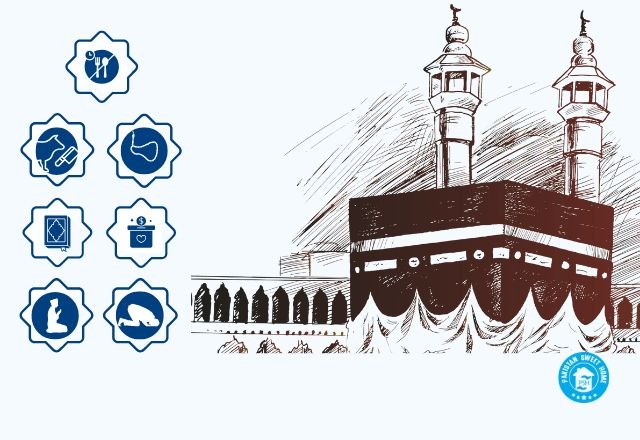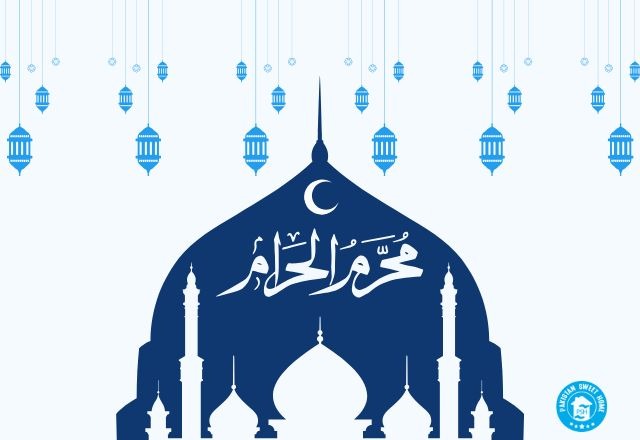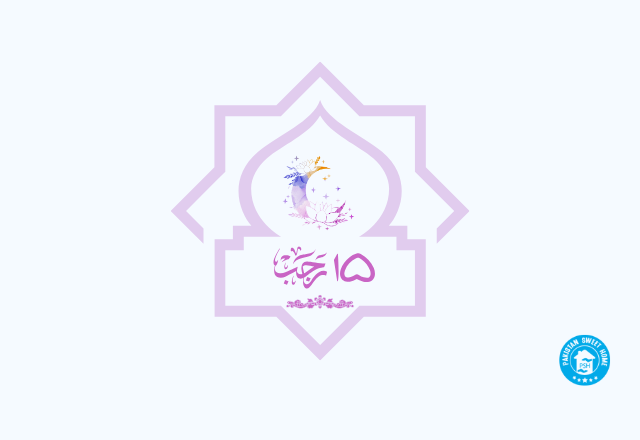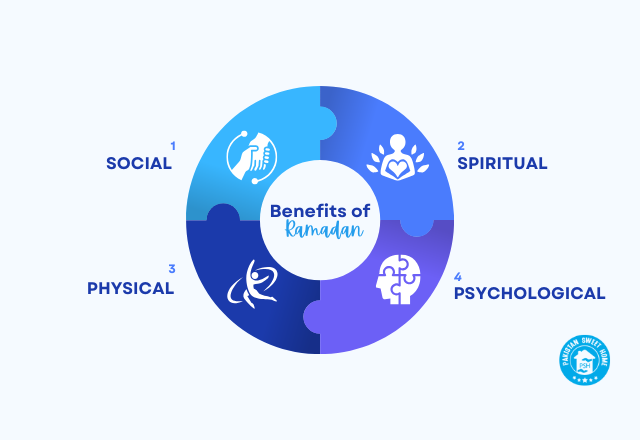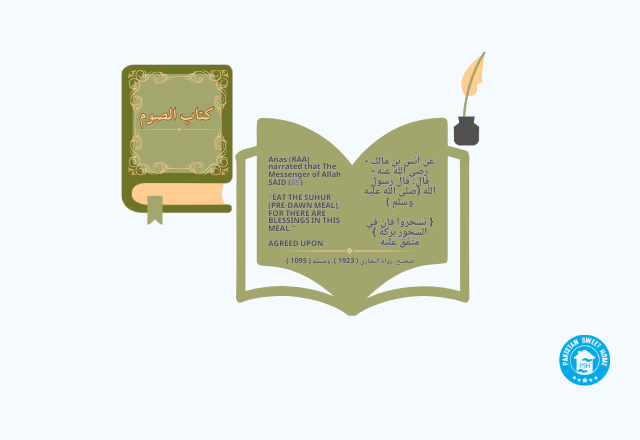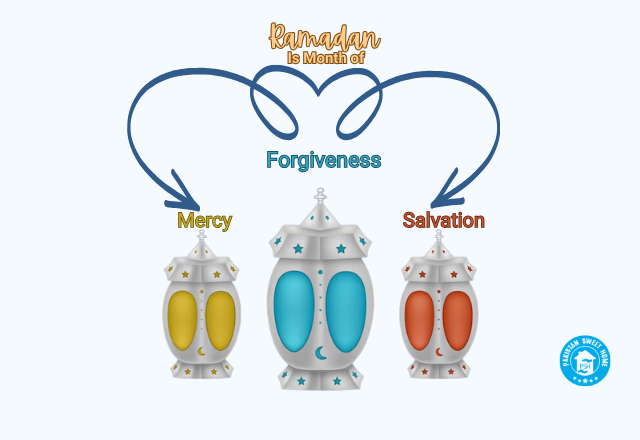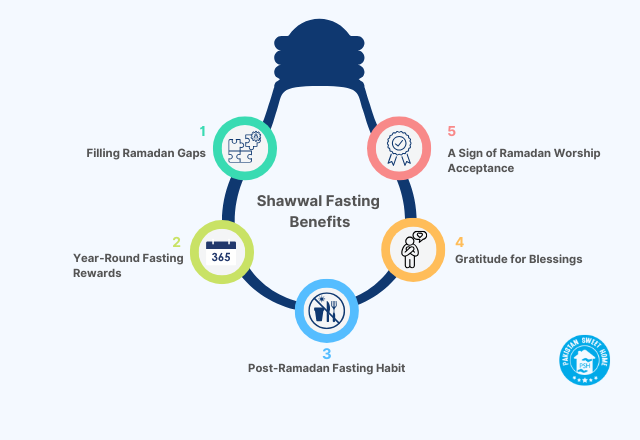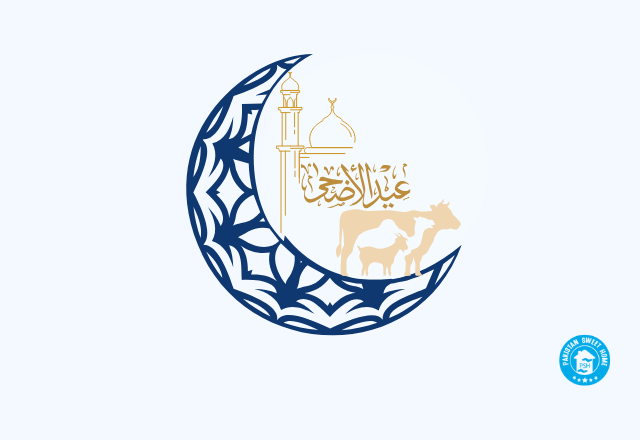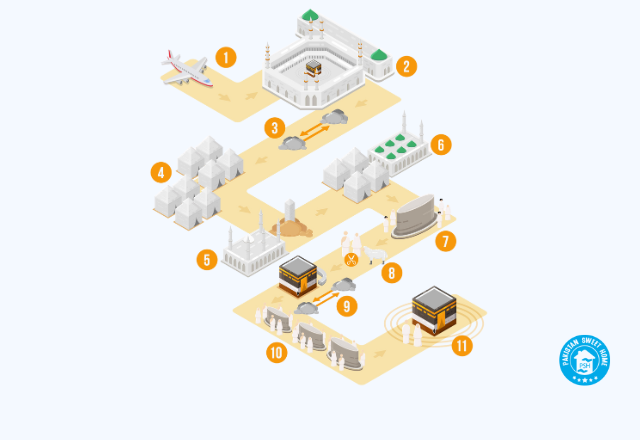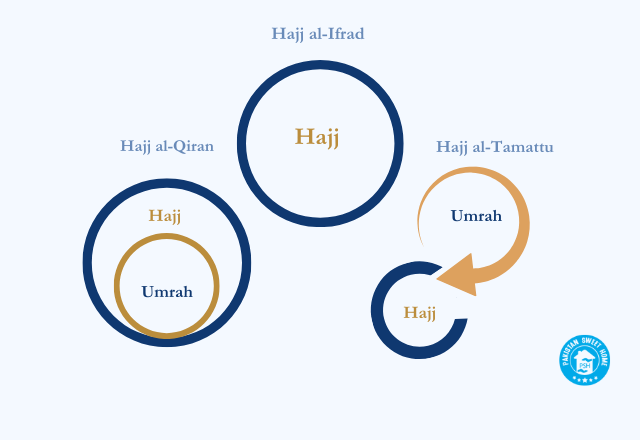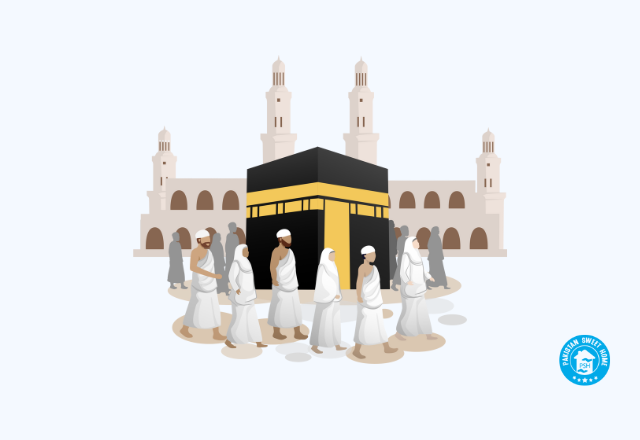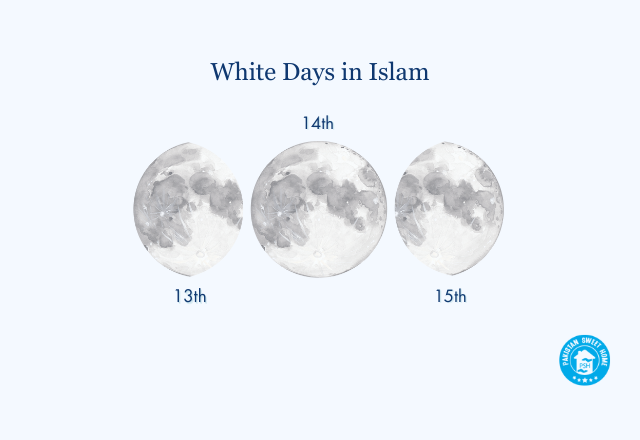Ever wondered why Suhoor is more than just a pre-dawn meal?
Too often, it's rushed—or skipped altogether—leaving many Muslims unaware of the physical strength and deep spiritual blessings they're missing out on.
Suhoor isn’t just about food—it’s about barakah, intention, and connection.
From the exact timing and Sunnah practices to what to eat and why it matters, this guide gives you everything you need to know in one place.
Whether you're new to fasting or seeking deeper meaning, this Suhoor guide helps you prepare, reflect, and begin each fast with clarity and purpose.
Suhoor Meaning in Islam
Suhoor, the pre-dawn meal, is a crucial part of Ramadan for Muslims.
It is the final meal before sunrise and the start of the daily fast. This meal is essential as it provides the energy needed to sustain one throughout the day, especially for those who continue to work during Ramadan.
In Arabic, Suhoor means "the last part of the night," which indicates that this meal is consumed before dawn. A balanced and nutritious Suhoor is crucial for fueling your body and preparing for the day ahead.
Suhoor Timing
Suhoor starts after midnight and concludes at dawn (Subah Sadiq), marking the beginning of Fajr. Most scholars agree that Suhoor can be eaten until the onset of dawn's ‘first light’ when sunlight first becomes visible.
The Quran states that fasting begins when:
“The white thread of dawn appears to you distinct from its black thread.”
(2:187)
Ramadan 2025 Suhoor & Iftar Time in Karachi
Day | Date | Suhoor | Iftar |
1 | 02 Mar 2025 | 05:37 AM | 6:36 PM |
2 | 03 Mar 2025 | 05:36 AM | 6:36 PM |
3 | 04 Mar 2025 | 05:35 AM | 6:37 PM |
4 | 05 Mar 2025 | 05:34 AM | 6:37 PM |
5 | 06 Mar 2025 | 05:33 AM | 6:38 PM |
6 | 07 Mar 2025 | 05:32 AM | 6:38 PM |
7 | 08 Mar 2025 | 05:31 AM | 6:39 PM |
8 | 09 Mar 2025 | 05:30 AM | 6:39 PM |
9 | 10 Mar 2025 | 05:29 AM | 6:39 PM |
10 | 11 Mar 2025 | 05:28 AM | 6:40 PM |
11 | 12 Mar 2025 | 05:27 AM | 6:40 PM |
12 | 13 Mar 2025 | 05:26 AM | 6:41 PM |
13 | 14 Mar 2025 | 05:25 AM | 6:41 PM |
14 | 15 Mar 2025 | 05:24 AM | 6:42 PM |
15 | 16 Mar 2025 | 05:23 AM | 6:42 PM |
16 | 17 Mar 2025 | 05:22 AM | 6:43 PM |
17 | 18 Mar 2025 | 05:21 AM | 6:43 PM |
18 | 19 Mar 2025 | 05:20 AM | 6:44 PM |
19 | 20 Mar 2025 | 05:19 AM | 6:44 PM |
20 | 21 Mar 2025 | 05:18 AM | 6:44 PM |
21 | 22 Mar 2025 | 05:17 AM | 6:45 PM |
22 | 23 Mar 2025 | 05:16 AM | 6:45 PM |
23 | 24 Mar 2025 | 05:15 AM | 6:46 PM |
24 | 25 Mar 2025 | 05:14 AM | 6:46 PM |
25 | 26 Mar 2025 | 05:12 AM | 6:47 PM |
26 | 27 Mar 2025 | 05:11 AM | 6:47 PM |
27 | 28 Mar 2025 | 05:10 AM | 6:47 PM |
28 | 29 Mar 2025 | 05:09 AM | 6:48 PM |
29 | 30 Mar 2025 | 05:08 AM | 6:48 PM |
30 | 31 Mar 2025 | 05:07 AM | 6:49 PM |
Ramadan 2025 Suhoor & Iftar Time in Islamabad
Day | Date | Suhoor | Iftar |
1 | 02 Mar 2025 | 05:11 AM | 6:06 PM |
2 | 03 Mar 2025 | 05:10 AM | 6:07 PM |
3 | 04 Mar 2025 | 05:09 AM | 6:08 PM |
4 | 05 Mar 2025 | 05:08 AM | 6:09 PM |
5 | 06 Mar 2025 | 05:07 AM | 6:09 PM |
6 | 07 Mar 2025 | 05:05 AM | 6:10 PM |
7 | 08 Mar 2025 | 05:04 AM | 6:11 PM |
8 | 09 Mar 2025 | 05:03 AM | 6:12 PM |
9 | 10 Mar 2025 | 05:01 AM | 6:13 PM |
10 | 11 Mar 2025 | 05:00 AM | 6:13 PM |
11 | 12 Mar 2025 | 04:59 AM | 6:14 PM |
12 | 13 Mar 2025 | 04:57 AM | 6:15 PM |
13 | 14 Mar 2025 | 04:56 AM | 6:16 PM |
14 | 15 Mar 2025 | 04:55 AM | 6:17 PM |
15 | 16 Mar 2025 | 04:53 AM | 6:17 PM |
16 | 17 Mar 2025 | 04:52 AM | 6:18 PM |
17 | 18 Mar 2025 | 04:50 AM | 6:19 PM |
18 | 19 Mar 2025 | 04:49 AM | 6:20 PM |
19 | 20 Mar 2025 | 04:48 AM | 6:20 PM |
20 | 21 Mar 2025 | 04:46 AM | 6:21 PM |
21 | 22 Mar 2025 | 04:45 AM | 6:22 PM |
22 | 23 Mar 2025 | 04:43 AM | 6:23 PM |
23 | 24 Mar 2025 | 04:42 AM | 6:23 PM |
24 | 25 Mar 2025 | 04:40 AM | 6:24 PM |
25 | 26 Mar 2025 | 04:39 AM | 6:25 PM |
26 | 27 Mar 2025 | 04:37 AM | 6:26 PM |
27 | 28 Mar 2025 | 04:36 AM | 6:26 PM |
28 | 29 Mar 2025 | 04:34 AM | 6:27 PM |
29 | 30 Mar 2025 | 04:33 AM | 6:28 PM |
30 | 31 Mar 2025 | 04:31 AM | 6:29 PM |
Ramadan 2025 Suhoor & Iftar Time in Lahore
Day | Date | Suhoor | Iftar |
1 | 02 Mar 2025 | 05:07 AM | 6:02 PM |
2 | 03 Mar 2025 | 05:06 AM | 6:03 PM |
3 | 04 Mar 2025 | 05:05 AM | 6:04 PM |
4 | 05 Mar 2025 | 05:03 AM | 6:05 PM |
5 | 06 Mar 2025 | 05:02 AM | 6:05 PM |
6 | 07 Mar 2025 | 05:01 AM | 6:06 PM |
7 | 08 Mar 2025 | 05:00 AM | 6:07 PM |
8 | 09 Mar 2025 | 04:59 AM | 6:07 PM |
9 | 10 Mar 2025 | 04:57 AM | 6:08 PM |
10 | 11 Mar 2025 | 04:56 AM | 6:09 PM |
11 | 12 Mar 2025 | 04:55 AM | 6:10 PM |
12 | 13 Mar 2025 | 04:54 AM | 6:10 PM |
13 | 14 Mar 2025 | 04:52 AM | 6:11 PM |
14 | 15 Mar 2025 | 04:51 AM | 6:12 PM |
15 | 16 Mar 2025 | 04:50 AM | 6:12 PM |
16 | 17 Mar 2025 | 04:48 AM | 6:13 PM |
17 | 18 Mar 2025 | 04:47 AM | 6:14 PM |
18 | 19 Mar 2025 | 04:46 AM | 6:14 PM |
19 | 20 Mar 2025 | 04:45 AM | 6:15 PM |
20 | 21 Mar 2025 | 04:43 AM | 6:16 PM |
21 | 22 Mar 2025 | 04:42 AM | 6:16 PM |
22 | 23 Mar 2025 | 04:40 AM | 6:17 PM |
23 | 24 Mar 2025 | 04:39 AM | 6:18 PM |
24 | 25 Mar 2025 | 04:38 AM | 6:18 PM |
25 | 26 Mar 2025 | 04:36 AM | 6:19 PM |
26 | 27 Mar 2025 | 04:35 AM | 6:20 PM |
27 | 28 Mar 2025 | 04:34 AM | 6:20 PM |
28 | 29 Mar 2025 | 04:32 AM | 6:21 PM |
29 | 30 Mar 2025 | 04:31 AM | 6:22 PM |
30 | 31 Mar 2025 | 04:29 AM | 6:22 PM |
Ramadan 2025 Suhoor & Iftar Time in Peshawar
Day | Date | Suhoor | Iftar |
1 | 02 Mar 2025 | 05:17 AM | 6:12 PM |
2 | 03 Mar 2025 | 05:16 AM | 6:13 PM |
3 | 04 Mar 2025 | 05:15 AM | 6:14 PM |
4 | 05 Mar 2025 | 05:14 AM | 6:14 PM |
5 | 06 Mar 2025 | 05:12 AM | 6:15 PM |
6 | 07 Mar 2025 | 05:11 AM | 6:16 PM |
7 | 08 Mar 2025 | 05:10 AM | 6:17 PM |
8 | 09 Mar 2025 | 05:08 AM | 6:18 PM |
9 | 10 Mar 2025 | 05:07 AM | 6:18 PM |
10 | 11 Mar 2025 | 05:06 AM | 6:19 PM |
11 | 12 Mar 2025 | 05:04 AM | 6:20 PM |
12 | 13 Mar 2025 | 05:03 AM | 6:21 PM |
13 | 14 Mar 2025 | 05:02 AM | 6:22 PM |
14 | 15 Mar 2025 | 05:00 AM | 6:22 PM |
15 | 16 Mar 2025 | 04:59 AM | 6:23 PM |
16 | 17 Mar 2025 | 04:57 AM | 6:24 PM |
17 | 18 Mar 2025 | 04:56 AM | 6:25 PM |
18 | 19 Mar 2025 | 04:55 AM | 6:26 PM |
19 | 20 Mar 2025 | 04:53 AM | 6:26 PM |
20 | 21 Mar 2025 | 04:52 AM | 6:27 PM |
21 | 22 Mar 2025 | 04:50 AM | 6:28 PM |
22 | 23 Mar 2025 | 04:49 AM | 6:29 PM |
23 | 24 Mar 2025 | 04:47 AM | 6:29 PM |
24 | 25 Mar 2025 | 04:46 AM | 6:30 PM |
25 | 26 Mar 2025 | 04:44 AM | 6:31 PM |
26 | 27 Mar 2025 | 04:43 AM | 6:32 PM |
27 | 28 Mar 2025 | 04:41 AM | 6:32 PM |
28 | 29 Mar 2025 | 04:40 AM | 6:33 PM |
29 | 30 Mar 2025 | 04:38 AM | 6:34 PM |
30 | 31 Mar 2025 | 04:37 AM | 6:35 PM |
Note: These Suhoor & Iftar timings are for Ramadan 2025. For current prayer times, please consult your local mosque or prayer app.
Importance of Suhoor
From a spiritual viewpoint, the Prophet Muhammad (peace be upon him) advised Muslims to eat Suhoor due to the hidden blessings associated with this meal.
It was narrated that Abu Sa’eed al-Khudri said, The Messenger of Allah (peace and blessings of Allah be upon him) said:
“There is a blessing in eating Suhoor, so do not skip it, even if one of you has a sip of water. For indeed Allah and His Angels send blessings and mercy on those who eat Suhoor.”
(Musnad Ahmad 11086)
Intention and Connection
Suhoor is a sacred time to renew our intention for fasting. By waking up early and partaking in this meal with sincerity, we forge a direct connection with Allah (SWT). It’s an opportunity to focus on our spiritual goals for the day, aligning our actions with our faith.
Reflection and Prayer
The tranquil hours before dawn offer a serene environment for reflection, supplication, and extra prayers. As we fast with Suhoor, we can seek forgiveness, express gratitude, and deepen our bond with the divine. It’s a moment to converse with Allah and seek His guidance.
Tahajjud Prayer
Waking up early for Suhoor creates a chance to perform Tahajjud (night prayer). This extra act of worship enriches our spiritual practice during Ramadan.
The peaceful moments before dawn allow us to combine physical nourishment with heartfelt prayer. Incorporating Suhoor and prayer into your pre-dawn routine enhances both physical nourishment and spiritual connection during Ramadan practice.
Discipline and Self-Control
Rising before dawn for Suhoor exemplifies self-discipline and self-control. Despite hunger and thirst, we abstain from food and drink during the day as an act of obedience. These qualities are crucial to our spiritual journey, highlighting patience and a conscious effort to overcome worldly desires.
Communal Spirit
While Suhoor is often enjoyed with family, it retains a communal spirit even when observed alone. Muslims worldwide share Suhoor, creating a united experience transcending boundaries and strengthening faith.
Eating Dates in Suhoor
Embracing Suhoor nurtures spiritual and physical health in Ramadan, following the Prophet's (PBUH) guidance. It is the Sunnah of eating dates for Suhoor.
The Prophet Muhammad (PBUH) said,
“The best pre-fasting meal for the believer is dates”
(Abu Dawood)
Including dates in Suhoor allows us to follow this Sunnah and receive its blessings. Dates are beneficial for Suhoor and fasting endurance. Scholars recommend eating an odd number of dates, such as 1 or 3.
In addition to their spiritual benefits, dates offer numerous health advantages. As the Prophet (PBUH) noted, “Indeed in dates, there is a cure” (Sahih al-Muslim).
Dates are rich in protein, B vitamins, fiber, and potassium, which support the immune system and overall bodily function.
Suhoor is Mandatory or Not?
Many Muslims do not know the worth of Suhoor. They do not wake up to eat their meal nor understand the value and wisdom behind waking up in Suhoor and eating it.
Suhoor is a blessed meal as it follows the Sunnah (tradition) of the Prophet Muhammad (peace be upon him). It not only offers the strength needed for Dhikr (remembrance of Allah SWT) but also provides the energy to sustain us through the day.
By waking up early for Suhoor, we as Muslims ensure we are awake to supplicate to Allah SWT during the last part of the night, which is the most favorable time for worship.
Suhoor Benefits
Here are some health and spiritual benefits of Suhoor:
Health Benefits of Suhoor
- Prevents Fatigue: Helps improve memory and concentration
- Boosts Metabolism: Increases the basal metabolic rate, aiding in weight management
- Regulates Blood Sugar: Maintains stable blood glucose levels during fasting and helps prevent hypoglycemia in diabetics
- Supports Digestion: Promotes healthy intestinal movement, preventing constipation, indigestion, and malabsorption
- Reduces hunger: Decreases hunger till iftar if Suhoor includes complex carbohydrates
- Prevents Headaches: Helps avoid headaches from hypoglycemia and dehydration
- Alleviates Thirst: Consuming fiber-rich vegetables, such as leafy greens, reduces thirst during fasting
Spiritual Benefits of Suhoor
- Aligns with Sunnah: Suhoor follows the tradition of the Prophet Muhammad (PBUH), enriching the spiritual experience of Ramadan
- Opportunities for Reflection: Provides a quiet, early morning time for personal reflection and supplication
- Enhanced Prayer Time: Allows for additional prayers and seeking Allah’s guidance during the Suhoor blessing pre-dawn hours
- Strengthens Connection: Deepens spiritual connection with Allah by observing a practice recommended in Islamic teachings
- Cultivates Discipline: Encourages self-discipline and mindfulness, setting a positive tone for the day of fasting
Suhoor Diet
If you're unsure what to eat for Suhoor, aim for a balanced and varied meal to provide your body with all the essential food groups.
Here's a guide for a nutritious Suhoor:
- Complex Carbohydrates: Choose from one cup of rice or spaghetti, two slices of bread, ½ loaf of Arabic bread, or one bowl of whole-grain cereals.
- Protein: Include 4 slices of cheese, 60 grams of meat, two eggs, a small plate of labneh, or 1 cup of legumes (such as fava beans)
- Vegetables: Add assorted vegetables
- Fruit: Enjoy fresh fruit
- Dairy: Drink one glass of milk or yogurt
Additionally, dried fruits, dairy, or dates with milk, a serving of complex carbohydrates, and sliced vegetables make excellent choices for Suhoor.
Suhoor Dua
Regarding Suhoor, no specific du'a has been prescribed for this time. It is recommended to say Bismillah before starting and to offer praise when finishing the meal, as with any meal.
Delaying Suhoor until the last third of the night increases the chance of accepted duas.
Abu Hurayrah (may Allah be pleased with him) narrated that the Messenger of Allah (peace and blessings of Allah be upon him) said:
“Our Lord, may He be blessed and exalted, comes down to the lowest heaven every night when the last third of the night is left, and He says: ‘Who will call upon Me, that I may answer him? Who will ask of Me that I may give him? Who will ask Me for forgiveness, that I may forgive him?’”
Narrated by al-Bukhari (1094) and Muslim (758). So he should say du’a at this time because it is a time when du’a is answered, not because of sahur.
Note: Regarding intention, it is a matter of the heart and does not need to be spoken aloud.
Shaykh al-Islam Ibn Taymiyah said:
“Whoever makes the intention in his heart to fast the next day has fulfilled the requirement.”
Dos and Don’ts of Suhoor
Here are the Dos and Don’ts of Ramadan Suhoor:
Dos:
Here are the Dos of Suhoor.
- Begin your Suhoor by saying the name of Allah
- Aim for consistency in your routine, but don’t worry if you occasionally miss Suhoor; your fast remains valid
- Delay Suhoor until it’s close to Fajr time
- Take your health needs into account when choosing Suhoor meals.
- Prioritize staying hydrated during Suhoor
- Involve the entire family in Suhoor
- Prepare meals in advance and keep quick meal options available
- Conclude Suhoor with prayers and expressions of gratitude
Don'ts:
Here are the Don'ts of Suhoor.
- Don’t skip Suhoor, thinking it proves your strength or piety
- Don’t stop eating or drinking before Fajr if you’re still hungry or thirsty
- Avoid choosing unsuitable Suhoor foods that may compromise your health
- Don’t overeat during Suhoor
In summary, Suhoor is not just a pre-dawn meal but a significant aspect of Ramadan with deep spiritual and physical benefits. With varying Suhoor timings across cities, it offers an opportunity to gain blessings, practice discipline, and follow the Sunnah of the Prophet Muhammad (PBUH).
Suhoor is highly recommended for its strength-providing benefits, especially when balanced with nutritious foods. Reciting the Suhoor dua and following the dos and don’ts further enhance the experience, making it a time of gratitude and preparation for the day's fast.
Among the most recognized homes for orphans in Pakistan, Pakistan Sweet Home sets the standard in structured child care. It offers more than just accommodation—there’s a focus on emotional healing, academic growth, and personal development. This well-rounded support helps children rebuild their lives and look forward to a better future.
Join Us in Caring for Orphans

info@pakistansweethome.org.pk
(051) 4865856
+92 335 1118477






